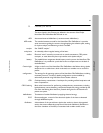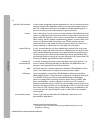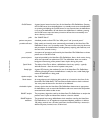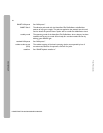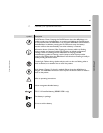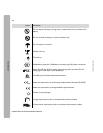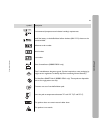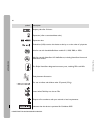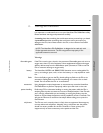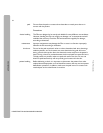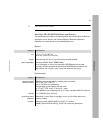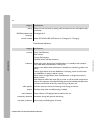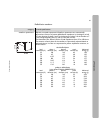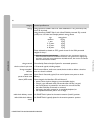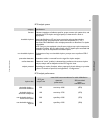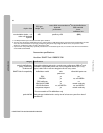
31
Philips Medical Systems
APPENDICES
D Warnings and Precautions
It is important to understand how to use your HeartStart FRx Defibrillator safely.
Please read these warnings and precautions carefully.
A warning describes something that could cause serious personal injury or death.
A precaution describes something that could cause minor personal injury,
damage to the FRx, loss of data stored in the FRx, or less chance of successful
defibrillation.
NOTE: The HeartStart FRx Defibrillator is designed to be used only with
Philips-approved accessories. The FRx may perform improperly if non-
approved accessories are used.
Warnings
flammable gases If the FRx is used to give a shock in the presence of flammable gases such as in an
oxygen tent, there is a risk of explosion. Move supplemental oxygen and oxygen
delivery devices away from the defibrillation pads. (However, it is safe to use the
FRx on someone wearing an oxygen mask.)
battery The HeartStart M5070A and 989803139301 batteries are not rechargeable. Do
not try to recharge, open, crush, or burn the battery, or it may explode or catch
fire.
fluids Do not let fluids to get into the FRx. Avoid spilling any fluids on the FRx or its
accessories. Spilling fluids into the FRx may damage it or cause a fire or shock
hazard. Do not sterilize the FRx or its accessories.
accessories Using damaged or expired equipment or accessories may cause the HeartStart
FRx Defibrillator to perform improperly, and/or injure the victim or the user.
patient handling Performing CPR or otherwise handling or moving the patient while the FRx is
analyzing heart rhythm can cause an incorrect or delayed analysis. If the FRx tells
you a shock is advised while you are handling or moving the patient, stop the
vehicle or CPR and keep the patient as still as possible for at least 15 seconds. This
will give the FRx time to reconfirm the analysis before telling you to press the
Shock button.
cell phones The FRx can work correctly when it is fairly close to equipment like emergency
two-way radios and cell phones. Normally, using a cell phone near the patient
should not cause a problem for the FRx. However, it is best to keep such
equipment only as close as necessary to the patient and the FRx.



